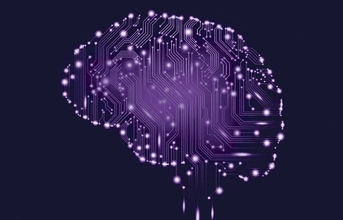
Artificial Intelligence (AI) in manufacturing domain is pretty much where Digitization was about 10-15 years ago. Very few people are actively doing anything with it, few folks have it on presentation slides and most people want to but don't know where to start. This is not just the story in India but also a global one. As manufacturing companies are starting to see value from digitization, AI brings the promise to increase that value exponentially. As per the National Artificial Intelligence strategy drafted by NITI Aayog - the manufacturing industry is expected to be one of the biggest beneficiaries of AI based solutions, thus enabling the ‘Factory of the
Future'. General Electric has been one of the leaders in adopting state-of-the-art Software and Analytics to manufacturing with their ‘Brilliant factory' initiative. This uses a combination of IoT (Internet of Things) and AI to maximize overall equipment effectiveness
(OEE), improve production scheduling, and ensure product quality by leveraging real-time production data. Siemens has been investing heavily in the smart factory initiative as part of Industry 4.0. In my mind, digitization is just the first step with basic return on investment through automation. AI is where the true value lies for factories with potential to revolutionize their end to end process from inventory management, operations, maintenance, quality and logistics. In US and China due their aggressive AI strategy many industries including manufacturing have started seeing huge productivity and efficiency boosts. In short, your digitization journey is incomplete without AI and now is a better time than ever to draft your AI strategy.
Most of us have heard stories about AI and some of the cool applications but have difficulty applying it to our domain. AI applications have been on a rise in recent years and so have the news stories around it. From voice-enabled assistants to self-driving cars to automated photo tagging to facial recognition for unlocking
phones - AI seems to be the headline story. There also has been news of some unthinkable outcomes of AI - like an AI that writes poetry or draws paintings - which was in fact auctioned out for $420,000 at Christies. AI is basically a technology that makes computers think and reason like human beings. There are several sub-areas of focus in AI like robotics, computer vision, natural language processing, knowledge-based engineering - but ultimately the objective is to make computers think with data. This is the key differentiator for AI - we don't explicitly tell the computer what to do - it decides for itself using what it has learnt from "experience". Thanks to the Digitization wave, our factories are collecting huge volumes of data - of several different variety like sensor readings, text entries, video feeds from cameras, advanced sensors like acoustic and infrared, etc. We collect gigabytes and terabytes of data and often it resides untouched in our databases or data lakes. Many organizations don't know what to do with all this data and how to convert this into actionable insights. They know that this data is valuable but do not have tools to extract useful insights from it - this is exactly what AI tries to solve for you. Figure below shows how a solid AI strategy can help guide you from digitization to the factory of the future. Core digitization and rule-based analytics will give you better insights from the shop-floor. However, using Machine Learning and Digital Twins you will be able to extract these insights from data and get a foresight of your factory. This foresight will help you plan operations and maintenance better and improve the overall effectives of your plant assets. Let's see how. (Refer to Fig. 1)
Most people see AI as rows of industrial robots on a shop floor. Robotics is definitely a major category of AI and lot of work is happening here. Industrial robots can automate time consuming tasks that require high accuracy. Also, certain operations which are unsafe for humans should be transitioned to robots. India has shown a steady increase in robot units as per International Federation of Robotics (IFR), with the automobile sector contributing to more than 50% of the numbers. However, compared to Asian countries like China and Japan, the relative robot units in factories are considerably low for India - 3 robot units per 10,000 employees as compared to 68 for China (1).
(Continued on next page)


























